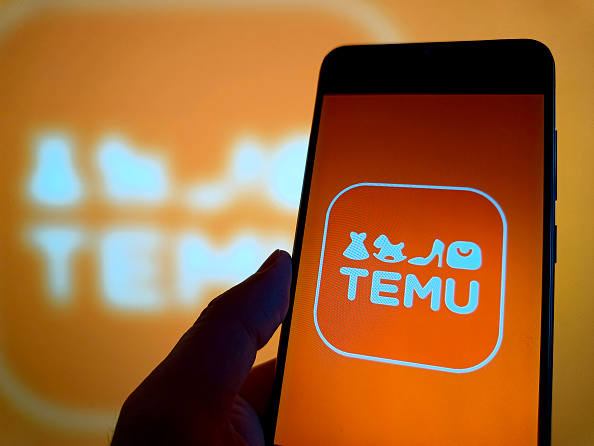(NewsNation) — President Donald Trump is eliminating a trade loophole that allows budget retailers like Shein and Temu to avoid tariffs on cheap Chinese goods.
Trump signed an executive order Wednesday to end the so-called “de minimis” exemption on merchandise from China and Hong Kong. The rule allowed companies to avoid import taxes and certain customs paperwork on packages worth $800 or less.
It’s a decision that could lead to higher costs for consumers who shop at bargain sites like Shein and Temu — both of which have relied on the exemption to sell ultra-low cost products and rapidily expand their U.S. footprint.
Trump’s tariffs aren’t strictly reciprocal. Here’s how he calculated them
Starting May 2nd, low-value imports from China will face a tax rate of either 30% of their value or $25 per item, according to a White House fact sheet. The dollar amount is set to increase to $50 after June 1.
With the rise of online shopping and direct-to-consumer business models, the use of the de minimis exemption has surged in recent years. Last year, nearly 1.4 billion shipments entered the U.S. through the duty-free route, more than double the 636 million recorded in 2020, according to U.S. Customs and Border Protection.
Lawmakers on both sides of the aisle have pushed to reform the de minimis provision in recent years, warning that the exemption makes it easier to smuggle drugs into the country.
More than 90% of all packages coming into the U.S. now enter via de minimis, and of those, about 60% come from China, according to Reuters.
Why is Trump ending the exemption?
The White House says that closing the trade loophole is a critical step to counter the flow of deadly drugs like fentanyl coming from China.
That’s because imports that enter the country through the de minimis exemption generally face less scrutiny and oversight than larger shipments.
“President Trump is targeting deceptive shipping practices by Chinese-based shippers, many of whom hide illicit substances, including synthetic opioids, in low-value packages to exploit the de minimis exemption,” the White House said.
Odds of a recession are rising, top economists warn
On an average day, CBP processes over 4 million de minimis shipments into the U.S. — an enormous volume that criminals are exploiting to traffic in illegal drugs, the agency has warned.
The Biden administration also took steps to close the loophole, proposing a rule change specifically aimed at cheap goods coming from China. Democratic officials used a similar line of reasoning at the time.
“The drastic increase in de minimis shipments has made it increasingly difficult to target and block illegal or unsafe shipments coming into the U.S. through this pathway,” Biden deputy national security adviser Daleep Singh said back in September.
After the House failed to bring a bill that would narrow the de minimis exemption, Democratic lawmakers called on Biden to use his executive authority to change the rule.
The National Council of Textile Organizations, a trade group that represents U.S. manufacturers, praised Trump’s move Thursday, calling it “long overdue.”
Will Temu and Shein products be more expensive?
Ending the de minimis exemption on goods from China could have a major impact on bargain sites like Shein and Temu, known for their ultra-low prices on clothes, home goods and other items.
A 2023 report by the House Select Committee on China’s Communist Party found that Shein and Temu are responsible for more than 30% of all packages shipped to the U.S. daily under the de minimis exemption.
Consumers will still be able to buy goods from Shein and Temu under the rule change, but they could be more expensive.
Is the US headed for a recession? 4 warning signs to keep an eye on
The Cato Institute, a libertarian-leaning think tank, argues that ending the exemption will “have far-reaching negative effects for Americans, particularly poorer consumers.”
The think tank cited research papers showing that the poorest zip codes in America receive more de minimis shipments, particularly from China, compared to the richest zip codes.
There are also administrative costs to consider. Back in February, Trump temporarily repealed duty-free treatment of low-cost imports from China but reversed course after packages started piling up at U.S. Customs.
The National Foreign Trade Council — whose members include FedEx, UPS and DHL as well as retailers like Amazon and Walmart — has defended the exemption and said restricting it would result in a tax hike on American families. According to the council, reducing de minimis would double the cost of a $50 package.
Another concern is that retailers may decide it’s no longer profitable to fly low-cost goods to the U.S. and instead put them on a container ship, leading to longer delivery times.
Temu and Shein did not respond to NewsNation inquiries asking how shoppers in the U.S. could be affected by the rule change.
Both companies have taken steps to grow their operations in the U.S. in recent years, which may soften the blow.
Temu recently started steering users to “local” products — items that can be shipped from warehouses in the U.S., CNBC reported. The business news outlet said Shein opened distribution centers in states including Illinois and California in 2022 and a supply chain hub in Seattle last year.
Will small packages from other countries be affected?
The de minimis rule change only applies to cheap goods coming from China and Hong Kong for now. That means shipments valued at $800 or less from countries like Canada or Mexico can still enter the U.S. duty-free.
However, packages from the rest of the world could lose their exemption soon. A separate executive order issued Wednesday said that the de minimis loophole would be closed once a system to “expeditiously process and collect” the duties is in place.
Research has found that completely eliminating the provision would result in costs of $11 billion to $13 billion for American consumers and disproportionately hurt low-income and minority households.

